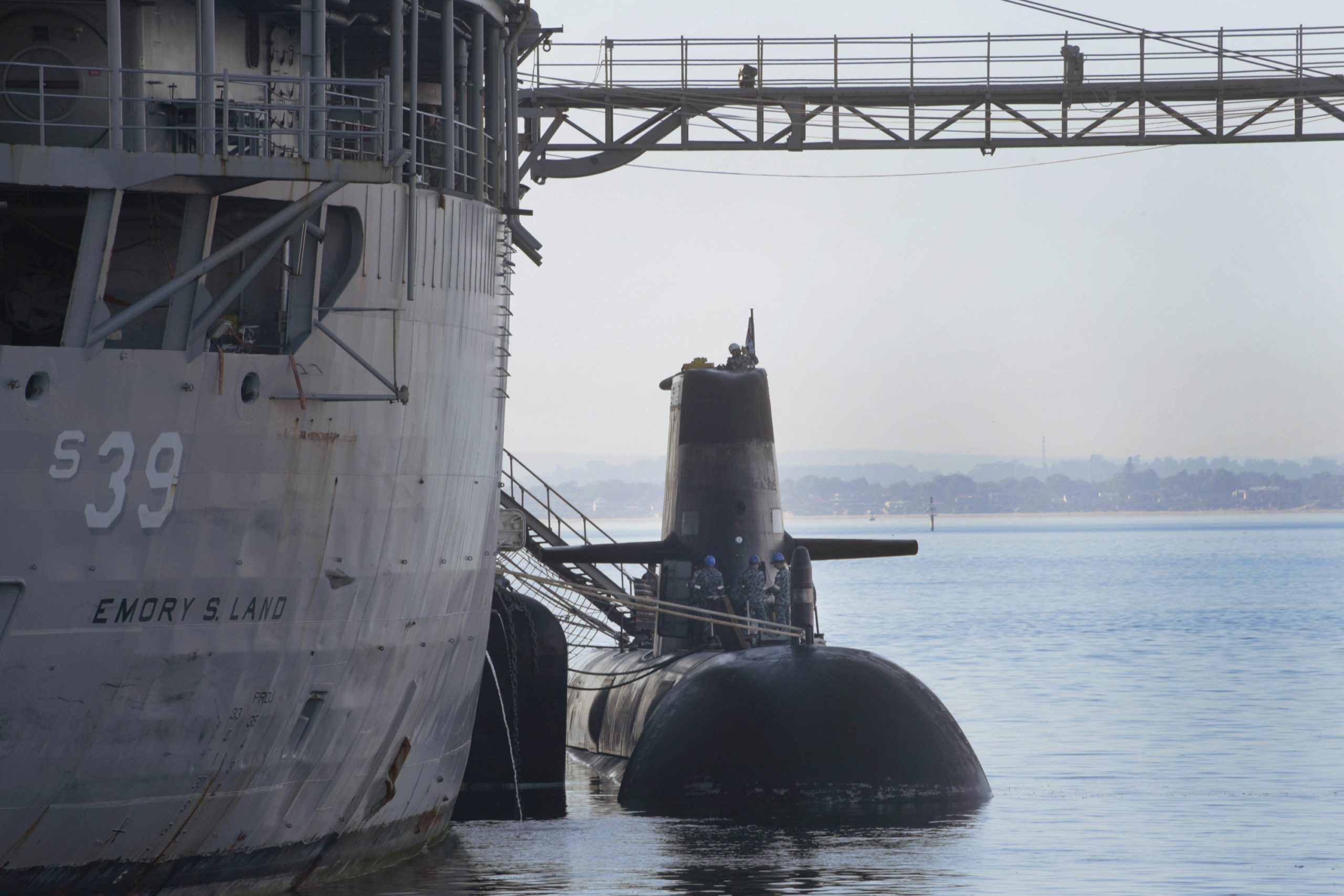By Sybilla Gross (Bloomberg) The US is discussing accelerating the production of nuclear submarines to bolster Australia’s defense capabilities in an effort to counter China’s growing military influence in the Asia Pacific region, the Wall Street Journal reported.
Under the plan, the US would provide Australia with the “first few” nuclear subs by mid-2030s to tide Australia over as it continues to develop its own production capabilities, the newspaper said, citing Western officials. The proposal — not yet approved — is one of several being considered as a means of more quickly securing a nuclear-powered fleet for Australia, according to the report.
Australia, the US and the UK forged an alliance last year to deepen defense ties and increase sharing of intelligence and technology as competition from China increases in the Asia-Pacific region. Under the pact, the UK and the US agreed to help Australia build and operate its own fleet of nuclear-propelled submarines by 2040, expanding its military reach.
Also Read: UK Royal Navy To Train Australian Nuclear Sub Sailors
In a statement on Saturday, the alliance members reaffirmed a “commitment to Australia acquiring this capability at the earliest possible date.”
Australia confirmed last week that it would build up its industrial base and skilled workforce to help construct and maintain a future fleet of nuclear-powered submarines.
Still, many details remain to be resolved. Australia has yet to announce which submarine model will be chosen for the partnership, or when the new vessels might be ready for service. Australian sailors are scheduled to be trained by the UK Navy onboard its nuclear-powered submarines, but no timeline has been disclosed.
The security partnership has drawn fierce opposition from China, with authorities escalating their concerns to the International Atomic Energy Agency. Beijing has argued that the agreement to give Australia nuclear submarine technology breached international non-proliferation treaties.
IAEA Director General Rafael Mariano Grossi said he was satisfied with the alliance partners’ engagement so far, prompting Chinese Foreign Ministry spokesperson Mao Ning to accuse the agency of turning “a blind eye” to international concerns.
By Sybilla Gross © 2022 Bloomberg L.P.
Editorial Standards · Corrections · About gCaptain
This article contains reporting from Bloomberg, published under license.

 Join The Club
Join The Club











